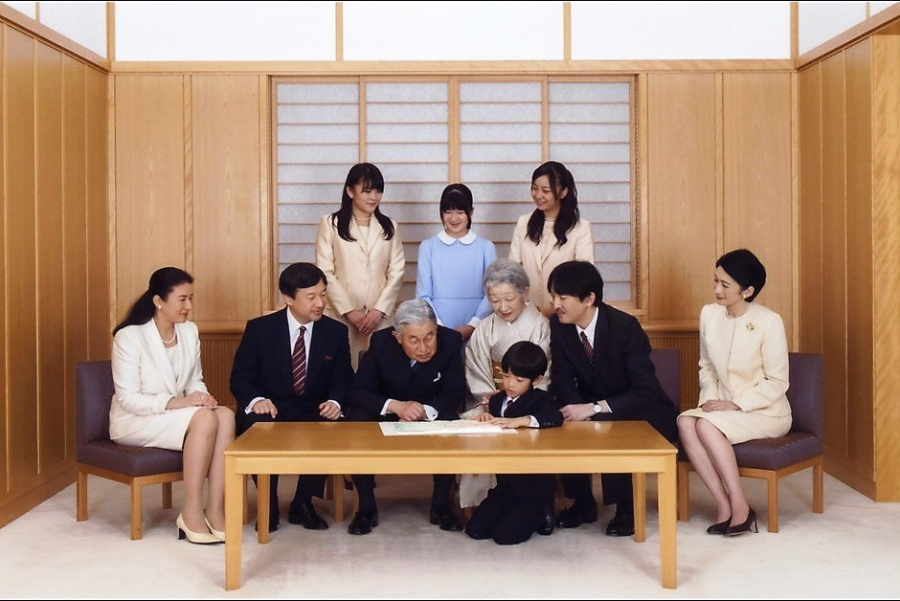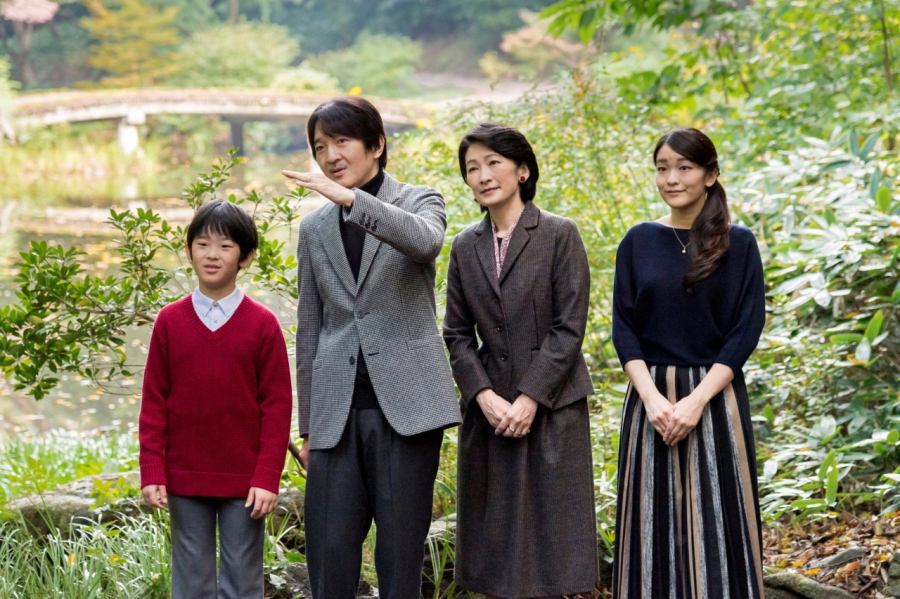Discover the 9 parenting rules of royalty and nobility:
1. Family always comes first
For princes and princesses, learning about family history and regularly visiting their ancestors’ graves is a must. They are taught that family is the one place that will never reject them, fostering a sense of love and care among family members. Royal parents also spend quality time with their children and uphold the tradition of sharing evening meals together, no matter how busy they are.

Royal offspring are taught that family is paramount. (Illustrative image – Japanese Royal Family)
2. Learning to respect others is fundamental
Members of royal and noble families are instilled with the value of respecting others from a young age. They are taught that “regardless of profession, social status, or wealth, every person deserves respect,” and gratitude is essential for those who work hard.
Additionally, children are educated about not wasting food and drinks. Depending on their age, they are assigned simple household chores suitable for their capabilities.
3. Royal life is not a life of leisure and opulence
In reality, royal and noble parents, like all other parents, take on the roles of caregivers. They feed, bathe, cook for their children, and put them to bed. So, alongside their busy daily schedules, they are dedicated to caring for and educating their offspring.

Royal life is not a life of idleness. (Illustrative image – Spanish Royal Family)
4. Education is a top priority
In royal family education, parents encourage their children to read daily to expand their knowledge. They lead by example, and as a result, their children develop a love for reading. Parents also take their children to libraries to explore valuable books.
5. Learning discipline is crucial
When royal parents are away on business, their children must stay home and follow rules. Obedience and adherence to set disciplines are non-negotiable.
6. Smart devices are strictly prohibited
Electronic devices like smartphones and iPads are off-limits to children until they come of age.

Young royals are forbidden from using smart devices. (Illustrative image – Japanese Royal Family)
7. Encouraging children to be physically active is essential
Instead of allowing children to use smart devices, royals and nobles promote outdoor activities and engagement with nature. Regardless of their natural inclinations, children are guided and gradually develop a love for physical activity.
8. Spending money frivolously is not allowed
Although royalty and nobility have ample financial resources, there are strict rules about how their children can spend money. Pocket money is limited, and even old clothes are not discarded casually.
9. Physical punishment is not an option
Another rule in royal parenting is a strict no-physical-punishment policy. When children make mistakes or disobey, gentle reminders and subtle corrective measures are used instead.
Nurturing Talented and Resilient Children: 3 Types of Admirable Mothers We Should Emulate
Parenting is a challenging yet rewarding journey, and every parent aspires to raise their children to be resilient, capable individuals who can overcome life’s adversities. Nurturing a child’s potential and equipping them with the skills to navigate obstacles is the ultimate goal, fostering their growth into confident and accomplished adults.
“The First Eight Years: Nurturing Your Child’s Character Development”
“Don’t worry if you can’t build a house yet; focus on building yourself first. Investing in self-improvement will save you a fortune in the long run, and the results will be well worth the wait. The first eight years of a child’s life are crucial, so parents must prioritize accompanying their children during this formative period.”



































